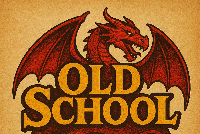My main problem with treating PC death as something that shouldn't be fudged slightly is that I want PCs death to mean something, not just be the result of random bad luck. Sure, if one PC is doing really stupid things or start acting as if he was invulnerable, I wouldn't hesitate much but always at the back of my mind would be: is this death of any use to the campaign, is it fun for the player (and others)? For example, take a group of 4, level 1 equivalent. You spent a week defining their characters and story, sorting their stats and everyone's pretty hyped. They just started their adventure and find themselves facing a pack of weak wolves you're just using to make sure everyone understands the rules of combat, set up their token, etc. The goal of the encounter is clear: quick rule check early on so that questions can be answered. Now, your players have CRAZY bad rolls and since you didn't much think about it and have an habit of rolling everything in the open, you can't fudge much without it being obvious. They ALL DIE....20 minutes in your first session, they're dead, just because you rolled 3 crits in a row... What was the point? Sure, it's "fair", but what did this serve apart from you making clear that "death can happen". Unless you're all used to play together for some time, some might end up going "screw this", others might want to just take the EXACT SAME PCs again and start over while others need another week to design new characters. All in all: complete...waste..of time. Now, if the GM start fudging rolls to make sure nothing too bad happens, players might also start feeling that nothing matters and do some crazy shit. To me, that's not a solution either. My personal take on this is, though you need players who can understand their PC and role-play properly: 1) Destiny (or Fate) I try to treat PCs as having a potential destiny ahead of them and that's why we all gather to tell their story. How does that manifest? Well, first, by not fudging rolls, but by adapting what they mean. For example, with the wolves, if you see that they are completely overwhelming the PCs, start focusing on what would such wolves do that you could use to slightly push the PCs destiny ahead. If they down one PC (using D&D next here as example, he'll need to stabilize), it might drive the others into a feeding frenzy, causing them to behave irrationally, rush toward the downed PC and start eating one of his leg or hand, etc. This is still logical in context, involves no die rolling and can give some room to breath for others. Wolves in such frenzy might totally ignore things like opportunity attacks and the like, they might get disadvantage on their defenses, etc. If things keep getting from bad to worse, let them fall, and as they do, a group of NPCs, who maybe have been tracking these wolves, arrive on the scene. 2) Role-play over dice rolling This one is simple but basically, always treat a clever, in context action that a PC tries to do, over a simple success/fail dice rolling. For example, if things start to go bad and one of the PC grabs a burning log from their camp fire and start yelling and trying to scare the wolves away, even if his roll is terrible, give it some room! A success might mean, well, it worked but a failure might mean that the wolves retreat a bit and start circling the PCs, which again might give them time to breath. 3) They are things worst than death If you think you players can handle it, I love this one. Basically, death is finale (usually), but there are worst things that can happen while keeping the PCs in play and, at the same time, mark them for every single session after that. The wolves don't have to kill per se, though they could maim the PC quite a bit, maybe even taking a hand, or scarring (and scaring) him for life. The orcs don't have to kill either, but take the PCs as slaves to abuse and maybe sell to some other party later on. The spiders don't have to kill on the spot, the PCs can find themselves waking up some time later, cocooned in the spider's lair. If you mix all these, you can get very dangerous fights with PCs being really scared, and at the same time, not have them be finale. The wolves attacked in the middle of the night and quickly overwhelmed the PCs. As they are falling unconscious, wolves slowly eating a leg here, an arm there, they can hear faint human shouts, sounds of combat, wolves running and finally a face over them, with a worried look saying: "don't worry, it'll be alright...". Then you deal with the semi-long lasting effects of this in both role-play and game term and now you have your players scared because you didn't pull punches and they lost, their PCs with a firm ground in the world and marks to prove it and yet relieved because it didn't end there.



















